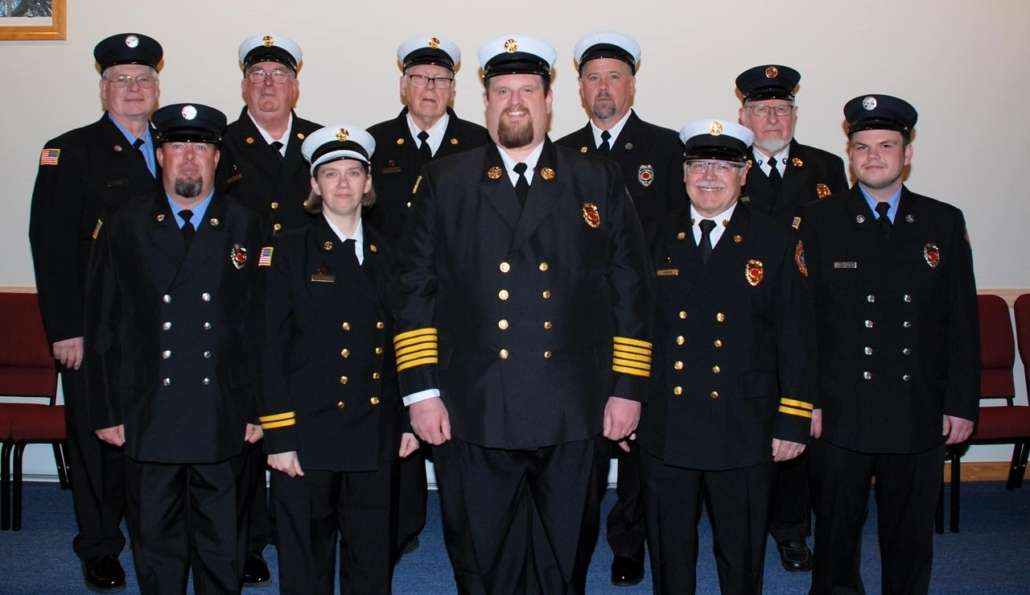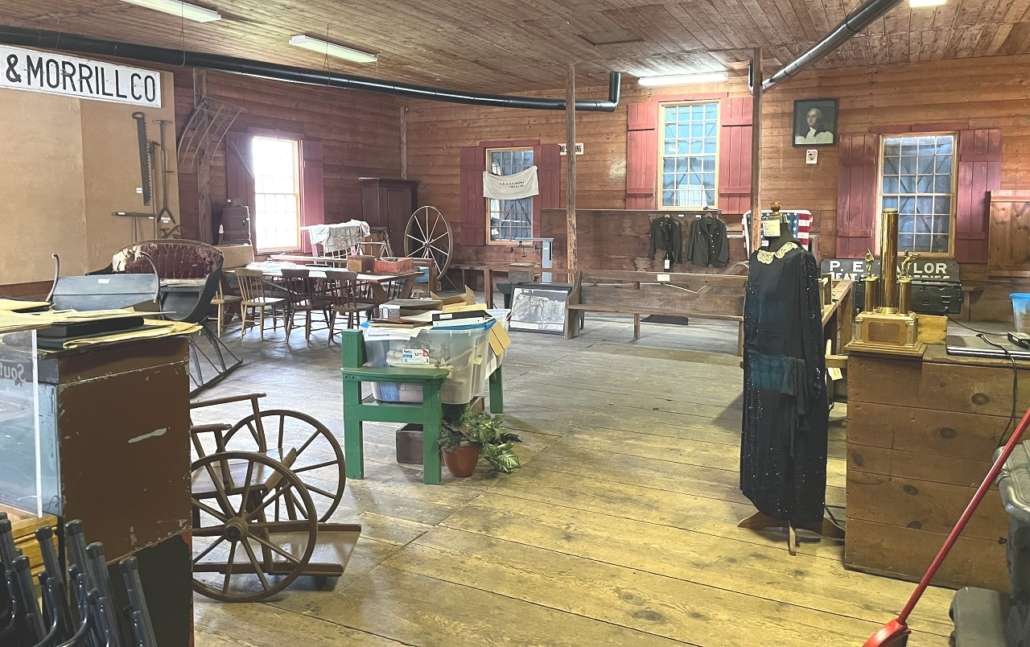China select board approves final warrant for business meeting
 by Mary Grow
by Mary Grow
Early in a series of unanimous decisions at their April 10 meeting, China select board members approved the final version of the warrant for the June 13 town business meeting.
The warrant has 32 articles. The one they did not previously approve asks voters to appropriate up to $43,000 from unassigned fund balance for a new fireproof storage vault for municipal records. It is now approved, and the whole warrant is ready for voters.
Copies of the warrant and of the two ordinances voters are asked to approve or reject are on the town website, china.govoffice.org.
Another unanimous vote adjusted fees at the transfer station. Town Manager Rebecca Hapgood explained that there are two changes:
- Instead of being charged individually, bulky items, like pieces of furniture, will count as demo debris and be charged by weight; and
- The fee for discarding passenger-car tires will increase from $4 each to $5 each.
Hapgood said China’s transfer station is not supposed to take out-of-town waste except under contract (as with Palermo). In the past, China accepted other towns’ recyclables, because disposing of them was slightly profitable. Prices have gone down and profit has disappeared.
Select board members voted unanimously to stop accepting recyclables from any towns except China and Palermo.
Recycling in-town materials does save money, Hapgood said, because it takes things out of the waste stream; getting rid of waste costs more than getting rid of recyclables.
The manager recommended board members ask codes officer Nicholas French and his part-time assistant, Dwaine Drummond, to update the list of penalties for land use violations and present it to select board and planning board members for their review.
Select board members agreed, and Hapgood said she would see if a draft could be available for the April 24 board meeting.
By additional unanimous votes, board members approved three expenditures:
- They authorized Hapgood to sign a contract with the Maine Department of Public Safety to provide law enforcement dispatching for the next fiscal year (July 1, 2023 – June 30, 2024), at a cost of $49,089.24, money Hapgood said is already budgeted.
- They agreed to buy portable traffic lights for use at road construction sites (so the public works crew can fix roads, instead of holding stop signs) for $48,960 from Northeast Traffic Technologies of Plymouth, Massachusetts; and to spend not more than $13,000 for an enclosed trailer to move the signs. The trailer will come from a local vendor, Hapgood said in a later email.
- They accepted another one-year contract with attorney Amanda Meader, whose hourly rate Hapgood said will increase by 8.11 percent. Other towns pay their lawyers more than China does, the manager added.
Hapgood and, in their bi-weekly reports, other town officials announced pending events that include, in chronological order:
- On Monday, April 17, China municipal departments will be closed for the Patriots’ Day holiday.
- On Saturday, April 22, at the public works garage just west of the transfer station on Alder Park Road, household hazardous waste take-back day, 8 a.m. to noon (preregistration required). Information is available in a hand-out at the transfer station and in the April 7 issue of “China Connected.”
- On Saturday, April 22, at the transfer station, drug take-back day, 10 a.m. to 2 p.m.
- On Monday, April 24, at 5 p.m. in the town office meeting room, a public meeting to learn about and collect ideas for resiliency projects in China, with Community Resilience Coordinator Robyn Stanicki, of the Kennebec Valley Council of Governments; followed by a select board meeting.
- Monday, May 1, is the deadline for applications for money from the Doris L. Young Scholarship Fund. Information is on the town website, under the heading Town Clerk, which is under Administration, which is under Town Departments.
- Monday, May 8, at 6 p.m. in the town office meeting room, public hearing on June 13 warrant articles, followed by a select board meeting.
- The annual Regional School Unit (RSU) #18 budget meeting and vote will be held Thursday, May 18, at 6 p.m. at Messalonskee High School Performing Arts Center in Oakland.










